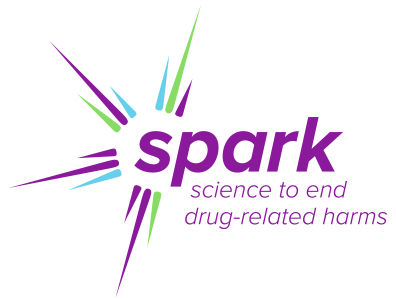An interview with Q3 2020‘s featured Spark affiliated faculty
 We had the pleasure of virtually talking with Dr. Rohan Palmer, an assistant professor of psychology at Emory. Please see the notes below from our conversation.
We had the pleasure of virtually talking with Dr. Rohan Palmer, an assistant professor of psychology at Emory. Please see the notes below from our conversation.
Rohan Palmer, a native Jamaican, came to the United States to pursue a degree in biology at William Paterson University. During his transition, he experienced the challenges of being an immigrant. He observes, though, that “when life gives you lemons, you make lemonade.” As a self-described “nerd”, Dr. Palmer described his love for the intricacies of how to build a logical unit. Dr. Palmer and his brothers would head into downtown NYC to buy computer parts and they would return home to build their own computers.
Since he was 10 years old, Dr. Palmer has been fascinated with how the brain works. As a biology major in college, Dr. Palmer was exposed to animal research in which he was able to study behavior in action. His mind was opened as a result, and he began to study biopsychology.
Dr. Palmer became interested in the possibility that the risk of addiction to one drug might put you at risk for using other substances. He posed the questions: Do genetic factors contribute to the use of substances later in life? What explains differences between co-use and co-dependencies – should we be looking at personality traits?
After completing graduate school at the Institute for Behavioral Genetics (IBG) at the University of Colorado at Boulder, Dr. Palmer began examining how a person develops risk of substance use disorders (SUDs), and how this risk expresses itself over time. For example, through studying adverse childhood events (ACEs), Dr. Palmer noticed trends such as the inability to cope with stressors or a defiance against rules that may represent a lack of social conformity, which in turn puts people at a greater risk for SUDs. In 2012, his research began highlighting the need to build systems around drugs of abuse rather than looking at one aspect of the genome. Currently, Dr. Palmer is advancing this topic, studying chronic alcohol exposure in humans and investigating similarities between outcomes in humans vs. mice. Dr. Palmer also just filed his first patent application for a treatment for cocaine use disorder.
Dr. Palmer describes his favorite project, a recent paper that analyzed the roles of genetic factors in alcohol dependence and variations across European ancestry vs. African ancestry. (To learn more, see more here). The project revealed that genetic effects are shared across people of Euro and African ancestry with alcoholism. Equipped with these vital results, Dr. Palmer advises for an expansion of genomic studies in under-represented communities.
While serving as principal investigator of a NIDA sponsored Avenir Award (DP1) and R01, among other roles, Dr. Palmer also serves as a lab director for the Behavioral Genetics of Addiction laboratory. As director, he supports many students, from undergraduate students to post-doctoral students, in their research endeavors (Check out Dr. Palmer’s lab here). Dr. Palmer urges students to “think about where you want to go with your research and what it will take to get there. Be open minded; open to learning new things. There is no limit to what you can do – it’s all about your imagination.” He stressed the importance of protected time to take one’s learning further. He continues: “It is not only about what classes you take but the importance of what you take away from what you are learning and how you plan to use it.”
To learn more about Dr. Palmer, check out his biography page.
